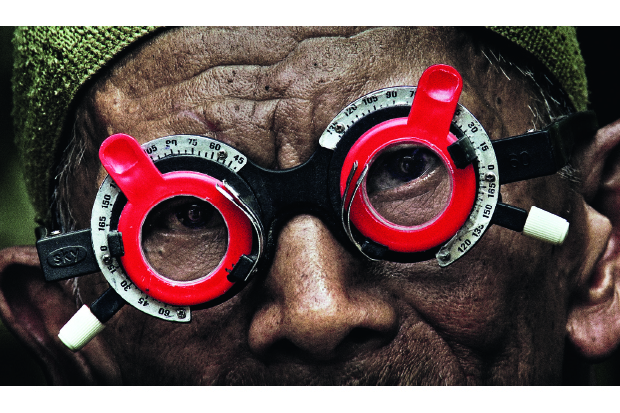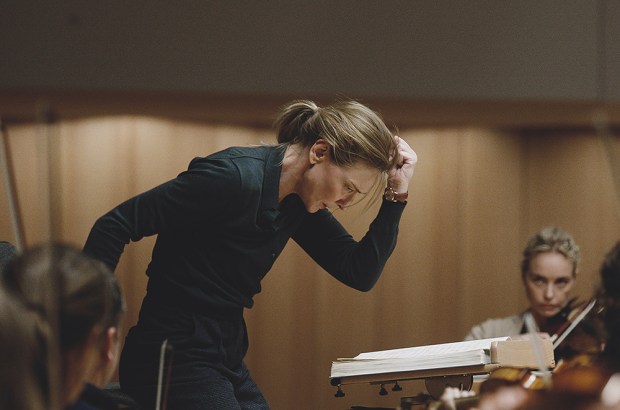With Joshua Oppenheimer’s The Act of Killing you’d be minded to think that’s it, that’s the Indonesian genocide (1965–66) done, but now he’s returned with a second film that is equally stunning, equally riveting — in its horrifying way — and equally unforgettable. To have one such film in you, but two? I think it is now safe to conclude: there are good documentary makers and there are excellent documentary makers and then there is Joshua Oppenheimer, who is amazing.
The Act of Killing showed Oppenheimer tracking down the ageing, unrepentant, positively gleeful members of the Indonesian civilian militia who, with the approval of the army and government, carried out the wholesale slaughter of a million suspected ‘communists’ after the Suharto coup. Extraordinarily, he persuaded them to memorialise their crimes in the styles of their favourite movies. I remember staying in my cinema seat and staring into space for quite a while after it had finished, trying to understand what I’d seen while asking myself: in what sort of moral universe do people take joy in re-enacting mass murders, dressed as John Wayne or otherwise? But I will leave that film here because if you have seen it you’ll know you have seen it, and will always know you’ve seen it, and if you have not seen it, I can’t hold everyone else up just because you’re a fool unto yourself.
The Look of Silence is simpler but is powerful precisely because of that simplicity. This is the story of the victims rather than the perpetrators, and it follows Adi Rukun, a mild-mannered, dignified and, somehow, rather exquisite 44-year-old optician whose older brother Ramli was killed two years before he was born. The parents are still alive. His father, at 103, is deaf, blind, toothless, senile, as cared for by the mother, bent by age and years of grief, who remembers everything about Ramli’s murder, how he was taken, and how he escaped at one point, crawling home across the rice fields with his belly sliced open and his intestines hanging out. Adi sets out to meet his brother’s killers. He doesn’t have to go far, as many live within the community, quite happily. They do not hide away because they have no sense of having committed a crime and also they and their kind continue to hold power in the country. The victim’s families all know who they are but are too afraid to speak, and even too afraid to acknowledge their own pain. Adi, you sense, is also asking: what kind of moral universe is this?
He meets a number of executioners and the commanders, some nearby, some now high up in government, sometimes testing their eyes at the same time, which neatly alerts us to the whole business of seeing and not seeing. He is not an aggressive interviewer and, unlike his mother — ‘I hope the killers’ children suffer’ — he is not seeking revenge. He is gentle, sympathetic and empathetic. But he wants details. He wants to understand. He wants the truth. There are many chillingly unforgettable moments, including a visit to his uncle, his mother’s brother who, smilingly, recounts that he served as a prison guard and yet did nothing to save Ramli. There’s the visit to the leader of a local killing squad who merrily reports how he drank his victims’ blood — ‘to stop me going crazy’ — and sliced off women’s breasts prior to cutting their throats and who then says ‘stop filming, Joshua!’ when Adi asks him how he feels about these events. Oppenheimer is not afraid of silence. His cameras roll long after anyone has stopped speaking, always focusing on the face. The ‘look of silence’ may even be that particular look when the interviewee is at a loss, having never been asked such questions before, and having no ready responses. Adi wants them to own their actions morally, so he can begin to relate to them as human beings. Most won’t and don’t, which is disappointing, but not a failure. Such questions are now out there, and that is absolutely the vital thing.
Oppenheimer, an American living in Denmark who came to Indonesia through The Globalization Tapes, a film about unionisation efforts in Sumatra, keeps a tactful distance this time, but is still with us throughout via his superlative visual sense, those silences, his love for the lush landscape, the occasional humorous moment — Adi’s father insisting he is only 17; Adi’s mother explaining why she no longer sleeps alongside his father: ‘He smells of pee!’ —and, also, his love for Adi. Adi’s involvement with this film must have come with great personal risk, and he is a hero. We see Adi’s son at school, being taught about ‘communists’ and how they gouge out people’s eyes and will slice up your face as soon as look at you — yes, it still goes on — and, later, Adi putting an arm round him and saying plainly, ‘It’s all lies.’ Amazing, all of it, but Oppenheimer, you should know, made The Look of Silence before The Act of Killing had been released. Now he is banned from Indonesia, so there won’t ever be a third film, but that’s OK. He’s done his bit.
Got something to add? Join the discussion and comment below.
Get 10 issues for just $10
Subscribe to The Spectator Australia today for the next 10 magazine issues, plus full online access, for just $10.
You might disagree with half of it, but you’ll enjoy reading all of it. Try your first month for free, then just $2 a week for the remainder of your first year.














Comments
Don't miss out
Join the conversation with other Spectator Australia readers. Subscribe to leave a comment.
SUBSCRIBEAlready a subscriber? Log in